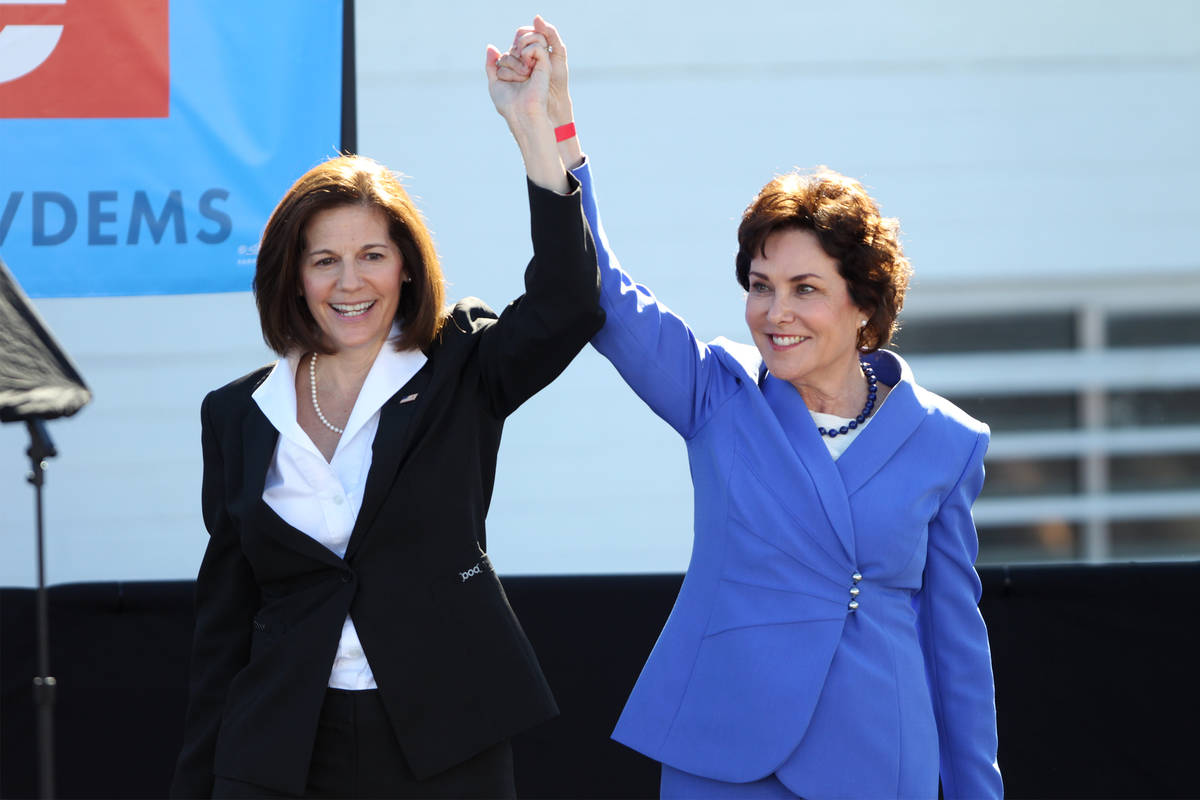EDITORIAL: How far left will the U.S. Senate drift?
Nevadans are about to learn a lot about their two Democratic U.S. senators.
In 2016, Catherine Cortez Masto defeated Joe Heck by a slim 47-45 margin to take over for the retiring Harry Reid. Since then, she has occasionally shown an independent streak by expressing reservations about “Medicare for All” and coming out against abolishing U.S. Immigration and Customs Enforcement. She even voted to approve a handful of President Donald Trump’s Cabinet nominees.
In 2018, Jacky Rosen knocked off incumbent Republican Dean Heller by a 50-45 margin. During her victory speech, she said, “I want you to know, I will always put Nevada first. I will work each and every day to represent everyone in our state.” She is currently supported by the “Mod Squad,” a political action committee that raises money for moderate Democrats. In April, the website FiveThirtyEight found that Sen. Rosen’s votes aligned with Mr. Trump’s legislative positions about 36 percent of the time.
But that was then, and this is now.
After last week’s Georgia election, the Democrats and Republicans each hold 50 Senate seats, meaning Vice President Kamala Harris will break all ties once Joe Biden enters the White House. The pressure from the new president’s left flank to rush through a slew of radical proposals on straight party-line votes will be immense. That means Sens. Cortez Masto and Rosen — who are both likely to face serious, well-funded challengers in 2022 and 2024, respectively — will potentially have to navigate a minefield of difficult votes that will test their commitment to motoring in the middle-left lane and will have major ramifications for their political futures.
Mr. Biden has vowed to make the coronavirus his priority during the first 100 days. But it won’t be long before progressives demand their tribute. During last year’s campaign, Sens. Cortez Masto and Rosen both demurred when asked whether they would support ending the filibuster. They may not be able to sit on the fence much longer. The same goes for issues such as D.C. statehood (an effort grounded not on principled “representation” concerns, but on the massive political advantages of adding two Democratic Senate seats), packing the Supreme Court, imposing speech restrictions, gun confiscation, repealing right-to-work laws, killing the Electoral College, a government takeover of health care and the socialist economic makeover labeled the Green New Deal.
It’s true that the small Democratic advantage in the chamber will make it more difficult to enact the far-left’s wish list. It may also give more prominence to Nevada’s senators. “With the split being 50-50,” one political observer told The Wall Street Journal last week, “it gives centrist Democrats more influence on any legislation.”
Perhaps. But some of the chamber’s most prominent leftists — Bernie Sanders and Elizabeth Warren, for instance — will gain more power in key committees, thus influencing legislation. And unless Mr. Biden signals that his professed goal of unifying the country doesn’t include radically overhauling our political and economic institutions — which is unlikely — expect progressives to push forward on a variety of fronts. Will Sens. Cortez Masto and Rosen then reveal themselves as the moderates they claim to be? Or will they quickly fall in line behind the extremists who have increasingly become the face of their party? Stay tuned.




























